Deputies vote to suspend nuclear project
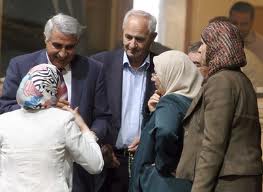
Raed Omari, The Jordan Times
AMMAN — Deputies on Wednesday approved a recommendation by a parliamentary committee to suspend Jordan's projected nuclear programme, invoking hazardous consequences of the energy generating project.
During a Lower House session, 36 out of the 63 MPs present voted in favour of a recommendation by the Energy and Mineral Resources Committee to bring to a standstill Jordan's nuclear programme which, it said, "will drive the country into a dark tunnel and will bring about an adverse and irreversible environmental impact".
However, Commissioner of the Jordan Atomic Energy Commission Khaled Toukan said Jordan's nuclear programme will be unaffected by a parliamentary motion to halt the project, saying that the project's activities fall in line with lawmakers’ demands (see related story).
Ahead of the vote, several deputies insisted that the "hazardous and costly” nuclear programme be suspended, calling on the government to switch to other environment-friendly energy-generating projects such as the solar and wind power.
Citing Jordan's lack of water resources, Balqa MP Mahmoud Kharabsheh, who launched the inquiry into the nuclear programme, said that the project will add new burdens to the already fragile budget, and called for resorting to clean alternatives to address the country's energy dilemma.
"Financially and geographically speaking, Jordan is incapable of starting a nuclear programme," said Irbid Deputy Zeid Shqeirat who voiced his "wholehearted" support for all the committee's recommendations.
For Jerash MP Wafa Bani Mustafa, moving forward with the nuclear programme is against the will of most Jordanians who, she said, are against the "risky" project.
Other MPs, including the Energy Committee Chairman Jamal Gammo, argued that Jordan is planning to implement a nuclear project at a time several countries, including Japan and Germany, have started dismantling their nuclear power plants.
Some deputies, however, including Khalil Attiyeh (Amman, 2nd District) and Bassel Ayasreh (Jerash, 1st District), said MPs are not experts in nuclear energy and thus cannot issue any verdict concerning the Kingdom's nuclear programme.
"It is wrong to stop such a national nuclear project," Attiyeh said, warning his colleagues against taking any decision to suspend the project.
The veteran deputy also said that none of the experts consulted by the Energy Committee has called for suspending the project, calling on his colleagues to be "fair" when deciding the matter.
In its final report, which was released last week, the Energy Committee accused the Jordan Atomic Energy Commission (JAEC) of deliberately "misleading" the public and officials over the Kingdom’s nuclear programme by "hiding facts" related to the cost of the projected nuclear reactor and deliberately omitting the cost of works other than the construction.
Ayasreh said deputies’ debate over a purely scientific issue was unreasonable. He called on his colleagues to support any move that contributes to easing Jordan's energy woes.
Also on Wednesday, a majority of deputies voted for approving the Energy Committee's recommendation to suspend uranium exploration in the Kingdom until a feasibility study is conducted.
In its report, the parliamentary committee also accused JAEC Chairman Khaled Toukan of issuing misleading statements that emphasise the economic feasibility of uranium mining in Jordan "despite the fact that no feasibility study has been conducted yet".
"Observing the principle of confidentiality of information, as stipulated in the agreement with AREVA, cannot be an excuse to keep deputies in the dark unless there is something JAEC intends to hide from the people and the Lower House," reads the report.
"How come the government approved such a big enterprise despite the fact that no feasibility study has been conducted?" Kharabsheh asked, calling for terminating Toukan’s service.
Describing the committee's report as "subjective", Zarqa Deputy Ali Khalaileh charged that the panel had discussions only with those who oppose the nuclear and uranium mining projects, without even listening to Toukan's opinion on the matter.
Responding to that, Gammo said that the committee consulted advocates and opponents of the project and sent a set of questions to Toukan whose reply was taken into consideration when the committee’s report was authored.
The government is required to abide by the committee’s recommendations that were approved by a majority of deputies.
Latest News
-
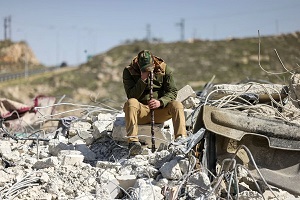 UN says Israeli actions raising 'ethnic cleansing' fears in West Bank, Gaza
UN says Israeli actions raising 'ethnic cleansing' fears in West Bank, Gaza
-
 Iran atomic energy chief says no country can deprive Tehran of enrichment rights
Iran atomic energy chief says no country can deprive Tehran of enrichment rights
-
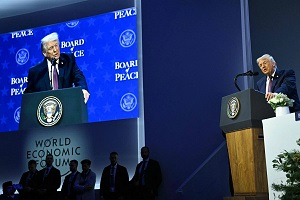 US to host first Gaza ‘Peace Board’ meeting Thursday
US to host first Gaza ‘Peace Board’ meeting Thursday
-
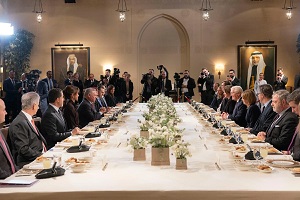 King, German president discuss strengthening cooperation, regional developments
King, German president discuss strengthening cooperation, regional developments
-
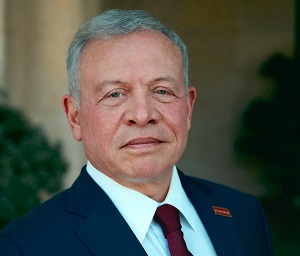 King extends Ramadan greetings to Arab, Islamic nations
King extends Ramadan greetings to Arab, Islamic nations